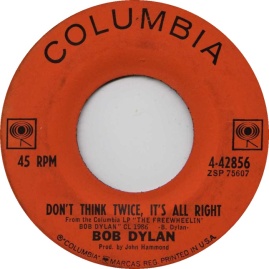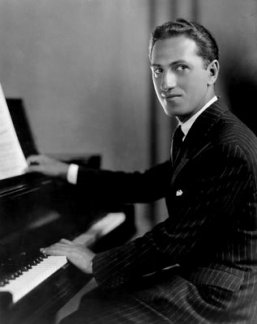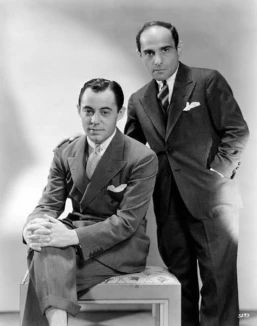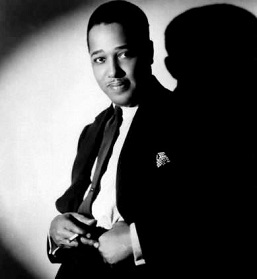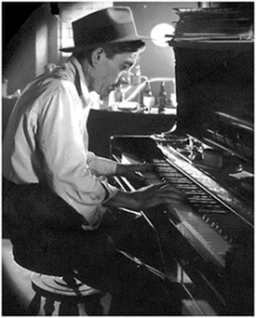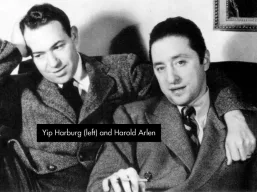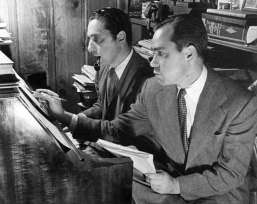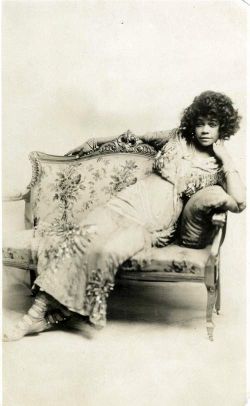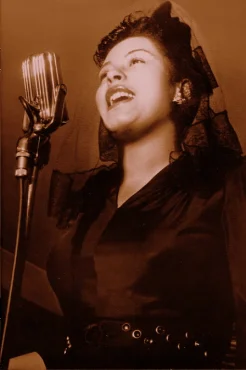Don’t Think Twice, It’s All Right — selected early recordings, 1962-1965
________________________________
Don’t Think Twice, It’s All Right (Bob Dylan)
Excerpts from the Wikipedia page on the song:
 The melody is based on the public domain traditional song “Who’s Gonna Buy Your Chickens When I’m Gone.”[1][2] The melody was [acquired by Dylan from] folksinger Paul Clayton, who had used the melody in his song “Who’s Gonna Buy You Ribbons When I’m Gone?”
The melody is based on the public domain traditional song “Who’s Gonna Buy Your Chickens When I’m Gone.”[1][2] The melody was [acquired by Dylan from] folksinger Paul Clayton, who had used the melody in his song “Who’s Gonna Buy You Ribbons When I’m Gone?”
As well as the melody, a couple of lines were taken from Clayton’s “Who’s Gonna Buy You Ribbons When I’m Gone?,” which was recorded in 1960, two years before Dylan wrote “Don’t Think Twice.”
It has been argued that the guitar on the original version of the song, which features a fast, fingerstyle style, was played by Bruce Langhorne.[3] However, Eyolf Østrem, the creator of the website dylanchords, has contended that Dylan himself played the guitar track.[4] In live performances, Dylan often strummed the chords, or flatpicked, but in a similar, fast-paced manner. Moreover, the 1963 ‘Witmark demos’ version of the song has Bob Dylan finger-picking, in a very similar manner to the original 1962 recording. Furthermore, a recording of an April 1963 concert in New York (Bob Dylan – Town Hall, NEW YORK CITY, New York 1963 [Bootleg]) contains a live version of “Don’t Think Twice”, finger-picked in a manner similar to that heard on the original recording.
From the Wikipedia page on Paul Clayton:
Bob Dylan’s friendship with Clayton dated back to 1961, Dylan’s first year in New York City. Dylan traveled cross-country with Clayton and two other friends in 1963, during which they visited poet Carl Sandburg in North Carolina, attended Mardi Gras in New Orleans and rendezvoused with Joan Baez in California.[30]
In an interview published as part of a history of Greenwich Village folk club Gerde’s Folk City, folk singer Barry Kornfeld described how Clayton’s “Who’s Gonna Buy You Ribbons (When I’m Gone)” morphed into Dylan’s “Don’t Think Twice”:
“I was with Paul one day, and Dylan wanders by and says, ‘Hey, man, that’s a great song. I’m going to use that song.’ And he wrote a far better song, a much more interesting song – ‘Don’t Think Twice, It’s All Right’.”[31]
Dylan’s and Clayton’s publishing companies sued each other over the alleged plagiarism. As it turned out, Clayton’s song was derived from an earlier folk song entitled “Who’s Gonna Buy You Chickens When I’m Gone?”,[32][33] which was in the public domain. The lawsuits, which were settled out of court, had no effect on the friendship between the two songwriters.[5]
From the Wikipedia page on the song:
[Bob Dylan girlfriend (1961-1964) Suze] Rotolo left New York in June 1962, with her mother, to spend six months studying art at the University of Perugia in Italy. She was known there as Justine Rotolo, having used an invented middle name to register as “S. Justine Rotolo”.[13] Dylan’s separation from his girlfriend has been credited as the inspiration behind several of his finest love songs, including “Don’t Think Twice, It’s Alright,” “Tomorrow Is a Long Time,” “One Too Many Mornings,” and “Boots of Spanish Leather.”[12][14][15]
From the liner notes*, by Nat Hentoff, of the album The Freewheelin’ Bob Dylan:
Dylan treats “Don’t Think Twice, It’s All Right” differently from most city singers. “A lot of people,” he [Dylan] says, “make it sort of a love song-slow and easy-going. But it isn’t a love song. It’s a statement that maybe you can say to make yourself feel better. It’s as if you were talking to yourself. It’s a hard song to sing. I can sing it sometimes, but I ain’t that good yet.”
________________
Who’s Gonna Buy You Ribbons (When I’m Gone) (Paul Clayton)
Paul Clayton — issued in March 1960 on the single Monument 45-416, as the B-side of “This Land Is Your Land” — also included on the 1960 LP Sings Home-Made Songs and Ballads, Monument M 4001
.
Don’t Think Twice, It’s All Right — selected recordings
Bob Dylan — recorded live 15 October 1962 at the Gaslight Cafe, New York City, New York; released in 2005 on the album Live at the Gaslight 1962, Columbia A 96016, Legacy A 96016; previously unofficially released on various bootlegs in 1973, 2001, and 2002 — see back of 2002 CD, The Gaslight Tapes 1962, The Home(r) Entertainment Network HEN 030, above right
.
Bob Dylan — recorded on 14 November 1962 at Studio A, Columbia Recording Studios, NYC, NY; released 27 May 1963 on the album The Freewheelin’ Bob Dylan, Columbia CL 1986 (Mono), CS 8786 (Stereo); also issued on 13 August 1963 on the single Columbia 4-42856, as the B-side of “Blowin’ in the Wind”
.
Bob Dylan — demo recorded in March 1963 at Witmark Studio, New York City, New York (time unknown)[5]; released on The Bootleg Series Volumes 1-3 (Rare & Unreleased) 1961-1991, and included on the 2010 compilation The Bootleg Series Vol. 9 – The Witmark Demos: 1962–1964
.
Bob Dylan — from the 12 April 1963 concert at Town Hall New York City, New York; unofficially released in 2008 on the bootleg New York Town Hall 1963 (AllDylan.com, BobsBoots.com, Discogs)
_____________________
The New World Singers featuring Gil Turner — recorded on 22 March 1963 in NYC; issued (as “Don’t Think Twice, It’s Alright”) in June 1963 on the single Atlantic 45-2190, b/w “Stew Ball”
Excerpts from the Wikipedia page on Gil Turner (photo added):
 Turner was a founding member of The New World Singers in 1962 with Happy Traum and Bob Cohen.[7][8] His most notable musical credit, however, was his association with Bob Dylan’s “Blowin’ in the Wind“. He was both the first person to perform the song – at Gerde’s on April 16, 1962, the night Dylan completed it – and with The New World Singers, the first to record it.[2][9][10]
Turner was a founding member of The New World Singers in 1962 with Happy Traum and Bob Cohen.[7][8] His most notable musical credit, however, was his association with Bob Dylan’s “Blowin’ in the Wind“. He was both the first person to perform the song – at Gerde’s on April 16, 1962, the night Dylan completed it – and with The New World Singers, the first to record it.[2][9][10]
In the fall of 1961, Turner became emcee at Gerde’s Folk City at Fourth and Mercer Streets near Greenwich Village’s northeast corner.[5][13] His position at Gerde’s, which featured both established artists and emerging talent, put Turner at the center of the Village’s burgeoning folk music scene.[14]
When [Pete] Seeger, Agnes “Sis” Cunningham and her husband Gordon Friesen were considering launching a magazine devoted to protest songs, Turner became the key to the enterprise.[15] Through his role at Gerde’s, Turner rounded up contributors of protest songs for Broadside during its first few years, many of them young songwriters like Phil Ochs, Bonnie Dobson, Len Chandler and Mark Spoelstra.[2][5]
One of the up-and-comers Turner brought around was Bob Dylan. Dylan, who had arrived in the Village in January 1961, signed with Columbia Records nine months later, around the time Turner was hired at Gerde’s.[16] The two became close friends and frequently hung out at taverns after Gerde’s closed for the night.[1] During one of their after-midnight sessions, Turner laid out the concept behind Broadside for Dylan, recruiting him as one of the magazine’s first contributors.[5] Not long afterwards, Seeger took Dylan to meet Cunningham and Friesen at a get-together at their apartment. When the debut issue of Broadside came out the next month, February 1962, among the five songs featured were Dylan’s “Talkin’ John Birch Paranoid Blues” and a protest song of Turner’s, “Carlino”.[17]
.
Joan Baez — from the album Joan Baez in Concert, Part 2, (US) Vanguard VSD 2123, released in November 1963; album recorded April-May 1963 during US concert tour
.
Jackie DeShannon — from her 1963 album Jackie DeShannon, (US) Liberty LRP-3320 (Mono), LST-7320 (Stereo)
.
Peter, Paul and Mary — issued on 28 August 1963 on the single Warner Bros. Records 5385, b/w “Autumn to May” — later included on the album In the Wind, (US) Warner Bros. Records W 1507 (Mono), WS 1507 (Stereo), released in October 1963
.
The Brothers Four — from their 1964 album More Big Folk Hits, (US) Columbia CL 2213 (Mono), CS 9013 (Stereo)
.
Waylon Jennings — recorded at Arizona Recorders in Phoenix on 4 December 1964; originally released in December 1964 on the LP Waylon at JD’s
Wikipedia says:
In 1961, Jennings and his band began playing a club called J.D.’s in Phoenix, Arizona, owned by J.D. Musil. Jennings’ eclectic repertoire, which included country, rock and roll, and folk music, made him a local star as he gained a loyal fan base throughout Arizona. “It’s a thing called payin’ your dues,” the singer explained in the authorized video biography Renegade Outlaw Legend, “but while you’re payin’ your dues you’re learnin’ your craft, you’re learnin’ your trade. You’re learnin’ what you’re gonna do.” Released to capitalize on Jennings’ popularity, Waylon at J.D.’s was sold only at Musil’s nightclub, and it sold out quickly so a new batch of albums was pressed. Those sold out as well. Early in his run at the club, Jennings hired his long-time drummer Richie Albright.
In 1969, Decca Records (now part of Universal Music) purchased the rights to the album from Musil, and reissued the album in an abridged form as “Waylon Jennings” on its Vocalion label.
.
The Johnny Mann Singers — from the 1964 LP Golden Folk Song Hits – Volume 3, Liberty LRP-3355 (Mono), LST-7355 (Stereo)
.
Johnny Cash — live, 24 July 1964, at Newport Folk Festival, Freebody Park, Newport, RI
.
Bob Dylan — from the 31 October 1964 concert at Philharmonic Hall NYC, NY; released 30 March 2004 on The Bootleg Series Vol. 6: Bob Dylan Live 1964, Concert at Philharmonic Hall
.
Bob Dylan — from the 5 May 1965 concert at Town Hall, Birmingham, England — video replaced, 10/16/2022; audio fixed
.
Johnny Cash — from the 1965 album Orange Blossom Special, Columbia CL 2309 (Mono), CS 9109 (Stereo)
.
Davy Graham — from the album Folk, Blues and Beyond, (UK) Decca LK 4649 (also LK.4649), released in January 1965
.
Bobby Bare — from his 1965 album Constant Sorrow, RCA Victor LPM-3395 (Mono), LSP-3395 (Stereo)
.
The Gene Norman Group — (as “Don’t Think Twice”) from the 1965 LP Dylan Jazz; album produced by Leon Russell and Snuff Garrett, and featuring Glen Campbell on guitar
.
Chad & Jeremy — from the 1965 album I Don’t Want to Lose You Baby, (US) Columbia CL 2398 (Mono), CS 9198 (Stereo)
.
Joan Baez — from a 5 June 1965 concert at the BBC Television Theatre in Shepherd’s Bush, London
OpenCulture.com says:
On June 5, 1965, Joan Baez played a special concert at the BBC Television Theatre in Shepherd’s Bush, London. Although her fame at the time was newly eclipsed by that of her recently estranged lover Bob Dylan, Baez was very much in her prime.
The concert was recorded less than a month after Dylan’s 1965 tour of England, chronicled in D.A. Pennebaker’s film Don’t Look Back, in which Dylan failed to invite Baez onstage despite the fact that she had introduced him to national audiences in America. [read more]
.
Duane Eddy — from the 1965 album Duane Eddy Does Bob Dylan, (US) Colpix Records CPL-494 (Mono), Colpix Records SCP 494, PCX S-222 (Stereo)
.
Odetta — from the 1965 LP Odetta Sings Dylan, (US) RCA Victor LPM-3324, LSP-3324
_____________________________
selected sources:
- songwriter: Bob Dylan
- songwriter: Paul Clayton
- album: The Freewheelin’ Bob Dylan
- song: Don’t Think Twice, It’s All Right
- Bob Dylan recording sessions
other
- SecondHandSongs
- Discogs.com
- lyric: BobDylan.com
- The Freewheelin’ Bob Dylan album liner notes, by Nat Hentoff
- Where can I find “Who’s Gonna Buy Your Chickens When I’m Gone”? **
- “The Song Collector: How folksinger Paul Clayton brought the music of Virginia to the world” by Catherine Moore, published in Virginia Magazine (uvamagazine.org), Spring 2010
_________________________________
* It seems odd that Hentoff and Dylan each refer to the song, written by Dylan and just being released, as if it is a well-known song, one that many “city singers” were familiar enough with to have included it in their repertoires. Dylan indicates that “[a] lot of people” sing the song, evidently meaning professionally, whether in the Greenwich Village folk music scene or elsewhere. It’s not clear whether they are referring to Paul Clayton’s “Who’s Gonna Buy You Ribbons When I’m Gone?,” the traditional song from which Clayton’s song was derived, or, alternatively, indicating that Dylan’s new song “Don’t Think Twice, It’s All Right” had already been picked up by numerous singers, either within the Village or beyond it.
** Where can I find “Who’s Gonna Buy Your Chickens When I’m Gone”? — The link is to a thread in the “Old Time Music” category at reddit.com. A couple of posts in this thread contain relevant links, including a link to sheet music of the song, under the title “Who Goñ Bring You Chickens,” in a book titled Eight Negro Songs, published c. 1923, and a link to a Library of Congress catalog entry of “Paul Clayton and George Foss recordings of Mary Bird McAllister,” which may include a recording of the song.
_______________________________
Vassar Night Owls — Fall, 2013




